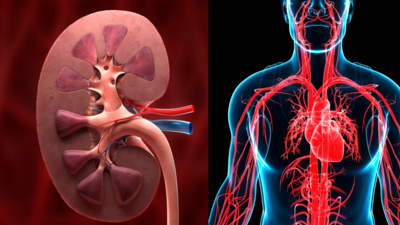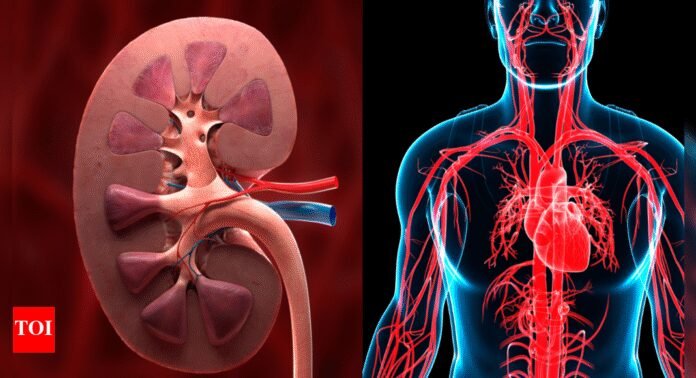Understanding the Heart-Kidney Connection: A Guide to Better Health

The heart and kidneys are vital organs that work together to keep us healthy. While many people think of them as separate, they are actually closely connected. Their health depends on each other.
If one organ starts to fail, the other is affected too. Today, the heart-kidney connection is a major health concern. This is especially true with the rise of heart and kidney diseases worldwide. It’s important to learn how to manage our kidney and heart health.
The Heart-Kidney Partnership
The heart and kidneys work together to regulate blood sugar, fluid balance, and waste removal. The heart pumps oxygen-rich blood to the kidneys. This helps the kidneys filter waste and extra fluid from the body.
In return, the kidneys regulate blood pressure and maintain electrolyte balance. This helps the heart function efficiently. When this system is affected by disease or poor health habits, the consequences can be severe.
How Kidney Disease Affects the Heart
Chronic Kidney Disease (CKD) can put extra pressure on the heart. This increases the risk of heart attacks, strokes, and heart failure.
One of the lesser-known risks of kidney disease is the high risk of heart problems. The National Kidney Foundation reports that people with CKD are more likely to die from heart issues than kidney failure. The risk grows as kidney function declines, even before a person reaches end-stage renal disease.
This makes early recognition and management of kidney function very important. It’s not just for maintaining kidney function but also for preventing heart problems.
Silent Symptoms and Consequences

Both kidney and heart disease are called “silent killers.” Symptoms often don’t show up until significant damage has occurred. Conditions like diabetes, high blood pressure, and a history of either kidney or heart disease increase vulnerability.
Pay attention to symptoms like:
- Fatigue
- Swelling of the ankles
- Changes in urine output
- Shortness of breath
These can indicate problems in either or both organs.
Prevention and Management

Experts suggest a comprehensive approach to prevent or control heart and kidney disease. This includes:
- Controlling blood pressure and blood sugar
- Eating a healthy diet low in sodium and saturated fat
- Exercising regularly
- Staying hydrated
- Avoiding smoking
- Regularly testing kidney function
Medications may also be prescribed to manage heart or kidney problems. However, lifestyle changes are key to long-term protection.
Conclusion
Understanding the heart-kidney relationship is crucial for patients and doctors. It shows the need to treat the body as a system of connected parts, not separate organs and symptoms. By paying attention to early warning signs and taking preventive measures, you can protect both your heart and kidneys. This will help you manage your health better.



